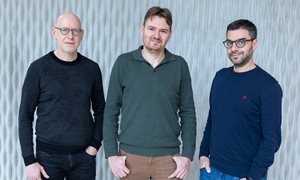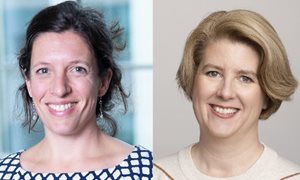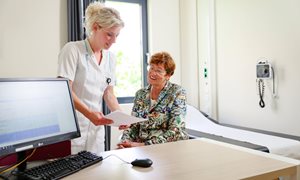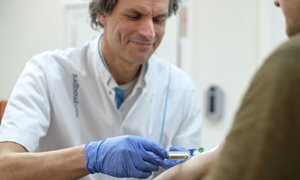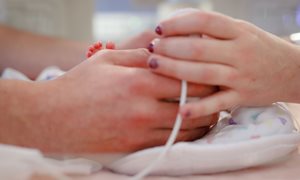
Jeroen van der Laak has been appointed Professor of Computational Pathology at the Radboudumc / Radboud University as of 1 February 2022. He develops artificial intelligence (AI) for the analysis of digitized tissue sections. In this way, he improves the accuracy of diagnostics within pathology, makes patient care more efficient, and ensures that high-quality analysis is also available in places where that expertise is lacking.
Shortly after studying Computer Science, Jeroen van der Laak (Echt, 1967) first came into contact with pathology. "I discovered the fascinating world and incredible richness of microscopic images," he explains. "You see every minuscule detail in beautiful colours. You can see inside the cell the biology down to the very smallest level. That tells a whole story and helps enormously in a diagnosis. With the mix of biology, healthcare and computer science, my interests came together perfectly. So I've been working on that for thirty years now."
Thin slices
In 2001, van der Laak received his doctorate for his thesis, entitled ‘Automated identification of cell and tissue components in pathology’. He then stayed at the Radboudumc and built on his research group, now about 25 people. Together they develop and validate AI for the analysis of tissue sections. These are very thin slices of tissue, which pathologists view and assess through a microscope. Nowadays, the Radboudumc works completely digitally, and all images are on the computer, enabling the development of AI that helps the pathologist assess the tissue.
Better than the pathologist
The Radboudumc was always at the forefront of these developments. "We were among the first to show that AI improves the assessment of tissue sections in the clinic," explains van der Laak. "My research group applied AI in diagnostics of various diseases. For example, we tracked down tumours and assessed how aggressive they were in breast cancer, prostate cancer and colon cancer. We looked for metastases in lymph nodes. And we analysed biopsies from transplanted kidneys. For all these applications, we compared AI to a reference panel of pathologists, and showed that AI is as good as the human experts, or sometimes even better."
Too subtle
The use of AI offers several advantages for the pathologist. Van der Laak: "First of all, we gain efficiency. The computer can take over work from the pathologist, speeding up the analysis and leaving more time for the pathologist to work on more complex cases. Secondly, AI makes the analysis more consistent. Pathologists can sometimes assess the same tissue in different ways. Especially if a pathologist is less experienced, AI can improve the assessment and make it more unambiguous. Third, AI extracts information from an image that a human simply cannot see, because it is too subtle, for example."
Bigpicture
For his work, Van der Laak received funding from the European Union and KWF, among others. He is the coordinator of Bigpicture, a 70 million Euro EU project, in which he is building the largest public dataset of digital pathology images in the world. In 2019, he gave the USCAP Nathan Kaufman Lecture, one of the most honourable lectures of the largest pathology congress in the world. He is a member of the board of the Digital Pathology Association and leads the European Society of Pathology's Task Force on 'AI in Pathology'. Since 2018, he has been a visiting professor at the Center for Medical Image Science and Visualization in Linköping, Sweden.
Clinical value
In addition to his academic work, Van der Laak founded a Radboudumc spin-off company, Aiosyn, of which he is the Chief Scientific Officer. With this company, he wants to ensure that hospitals worldwide start using AI in their daily practice. Van der Laak: "Researchers are very good at developing innovative techniques, but translating these into something that actually improves healthcare is difficult for academics. In my new position and with Aiosyn, I will focus even more strongly in the future on translating scientific results into solutions that actually benefit our patients."
More information
For more information about Jeroen van der Laak's research, click here.
-
Want to know more about these subjects? Click on the buttons below for more news.
More information
Annemarie Eek

wetenschapsvoorlichter
Related news items
.aspx?width=800&height=534&ext=.jpg&type=BlockColumn1Zoom1)
